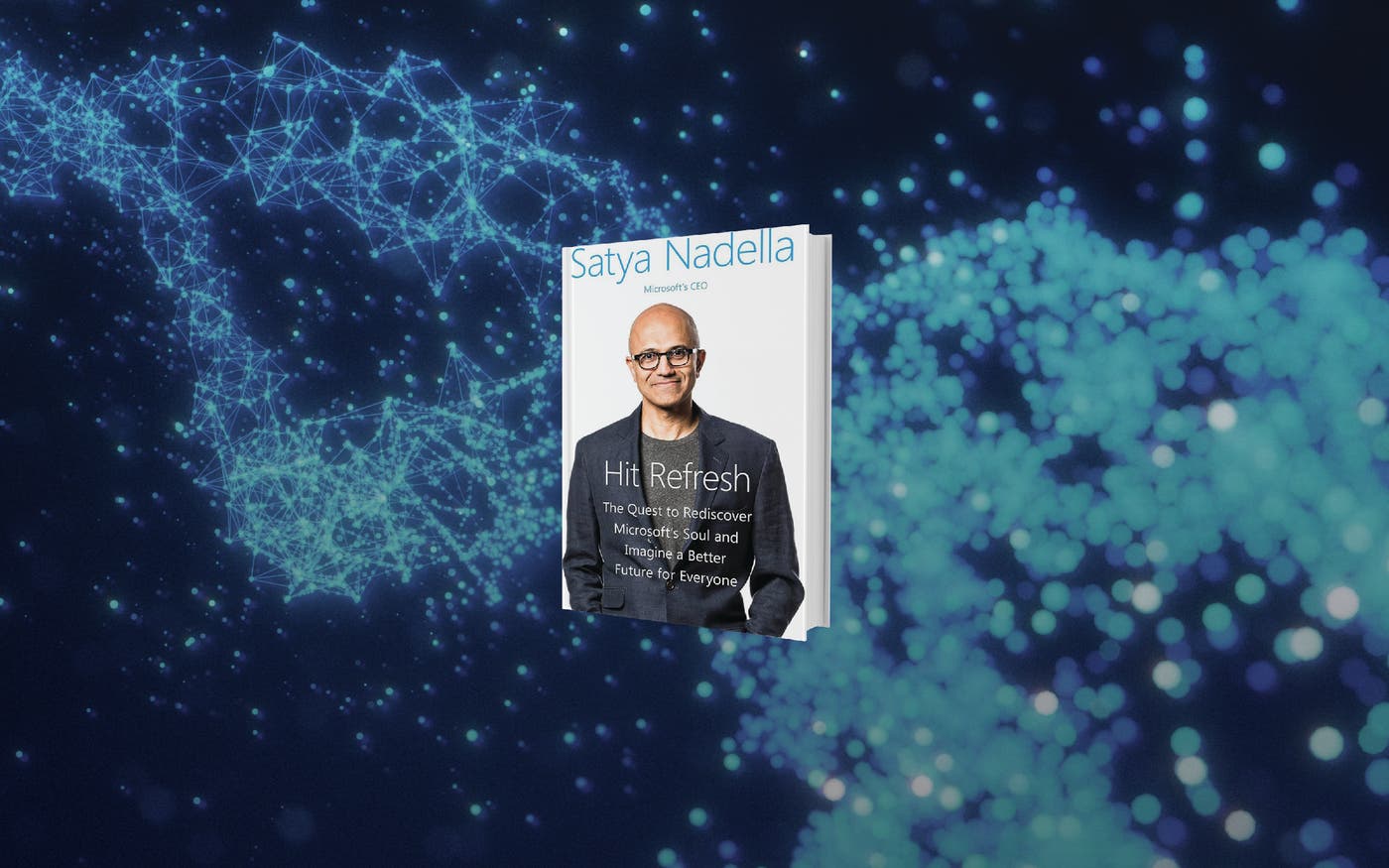
Making his mark
Satya Nadella’s guide to the future
When the Microsoft CEO asked me to write the foreword for his new book Hit Refresh, I was happy to say yes.

I spend a lot of time thinking about the future. When I’m deciding which book to read next, I often reach for ones that offer another perspective on where society is headed. So when Microsoft CEO Satya Nadella told me that he was working on a new book about the future of technology, I couldn’t wait to read it. And when he asked me to write an introduction for Hit Refresh, I was happy to say yes.
I hope you’ll enjoy my foreword, which I’ve shared below. Satya has a lot of interesting things to say about the transformation of both Microsoft and the tech industry at large. I’ve benefitted from his insights for decades, and I’m glad everyone else will now have the same opportunity to learn from him.
Foreword:
I’ve known Satya Nadella for more than twenty years. I got to know him in the mid-nineties, when I was CEO of Microsoft and he was working on our server software, which was just taking off at the time. We took a long-term approach to building the business, which had two benefits: It gave the company another growth engine, and it fostered many of the new leaders who run Microsoft today, including Satya.
Later I worked really intensely with him when he moved over to run our efforts to build a world-class search engine. We had fallen behind Google, and our original search team had moved on. Satya was part of the group that came in to turn things around. He was humble, forward-looking, and pragmatic. He raised smart questions about our strategy. And he worked well with the hardcore engineers.
So it was no surprise to me that once Satya became Microsoft’s CEO, he immediately put his mark on the company. As the title of this book implies, he didn’t completely break with the past—when you hit refresh on your browser, some of what’s on the page stays the same. But under Satya’s leadership, Microsoft has been able to transition away from a purely Windows-centric approach. He led the adoption of a bold new mission for the company. He is part of a constant conversation, reaching out to customers, top researchers, and executives. And, most crucially, he is making big bets on a few key technologies, like artificial intelligence and cloud computing, where Microsoft will differentiate itself.
It is a smart approach not just for Microsoft, but for any company that wants to succeed in the digital age. The computing industry has never been more complex. Today lots of big companies besides Microsoft are doing innovative work—Google, Apple, Facebook, Amazon, and others. There are cutting-edge users all around the world, not just in the United States. The PC is no longer the only computing device, or even the main one, that most users interact with.
Despite all this rapid change in the computing industry, we are still at the beginning of the digital revolution. Take artificial intelligence (AI) as an example. Think of all the time we spend manually organizing and performing mundane activities, from scheduling meetings to paying the bills. In the future, an AI agent will know that you are at work and have ten minutes free, and then help you accomplish something that is high on your to-do list. AI is on the verge of making our lives more productive and creative.
Innovation will improve many other areas of life too. It’s the biggest piece of my work with the Gates Foundation, which is focused on reducing the world’s worst inequities. Digital tracking tools and genetic sequencing are helping us get achingly close to eradicating polio, which would be just the second human disease ever wiped out. In Kenya, Tanzania, and other countries, digital money is letting low-income users save, borrow, and transfer funds like never before. In classrooms across the United States, personalized-learning software allows students to move at their own pace and zero in on the skills they most need to improve.
Of course, with every new technology, there are challenges. How do we help people whose jobs are replaced by AI agents and robots? Will users trust their AI agent with all their information? If an agent could advise you on your work style, would you want it to?
That is what makes books like Hit Refresh so valuable. Satya has charted a course for making the most of the opportunities created by technology while also facing up to the hard questions. And he offers his own fascinating personal story, more literary quotations than you might expect, and even a few lessons from his beloved game of cricket.
We should all be optimistic about what’s to come. The world is getting better, and progress is coming faster than ever. This book is a thoughtful guide to an exciting, challenging future.


